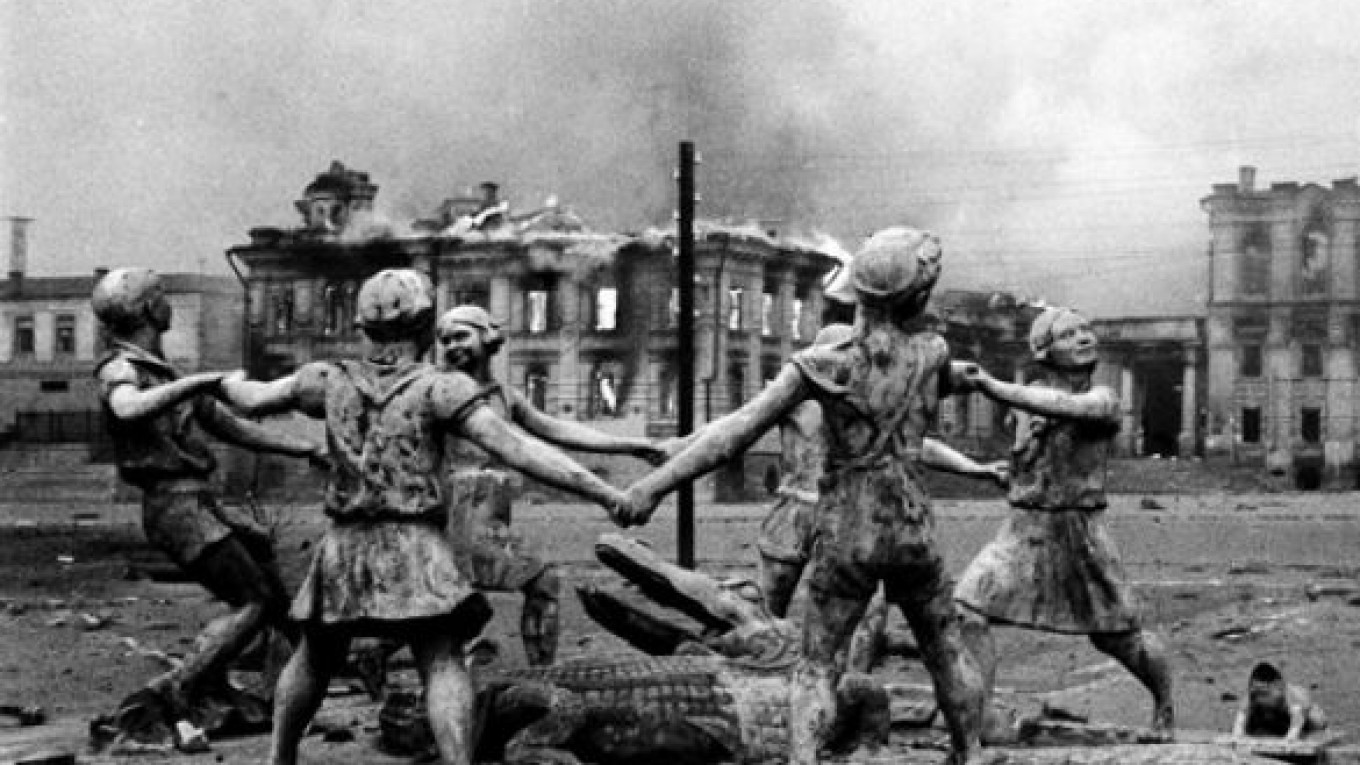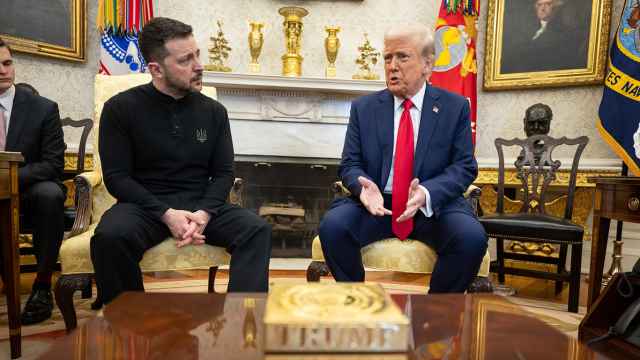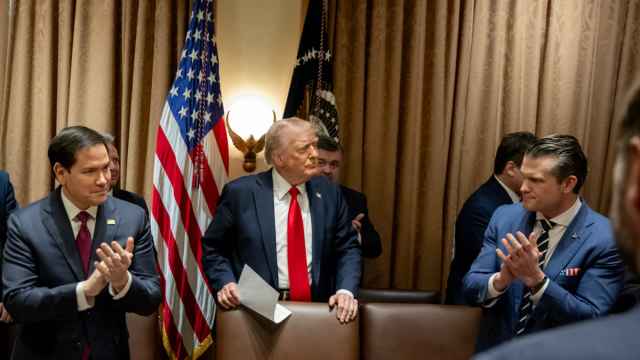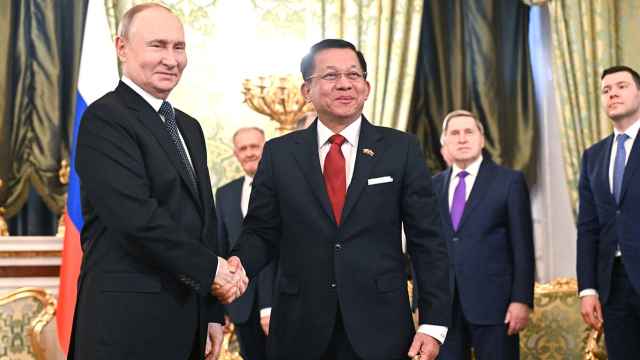A statue from a tragic time returned to the southern city of Volgograd on Friday as President Vladimir Putin met with bikers and World War II veterans for the unveiling of the Detskiye Khorovod (The Children's Dance) fountain.
A picture of the fountain taken by Emmanuil Yevzerikhin on Aug. 23, 1942, conveyed the devastation of the Battle of Stalingrad by juxtaposing a pastoral scene of children dancing around a playful crocodile and the city's bombed-out, burning buildings in the background.
On the day the photograph was taken, about 40,000 civilians lost their lives to Nazi air strikes, according to official statistics.
The government tore down the fountain after the war, apparently not considering it worth saving for cultural or historical value.
“One of them [the symbols] in prewar Stalingrad was this fountain and group of dancing children. It symbolized joy, life, carefreeness,” Putin said.
The president also noted that Friday marked the 70th anniversary of the end of the Battle of Kursk, in which the Red Army scored a crucial victory over Nazi forces in Kursk, a city about 500 kilometers south of Moscow.
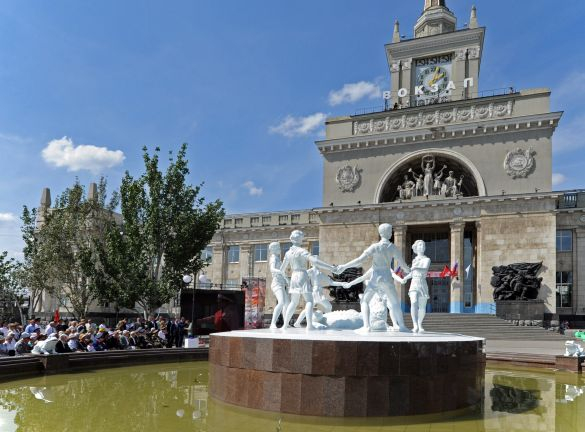
Veterans in Volgograd attending the unveiling of a replica of a fountain that survived heavy bombing during WWII.
Alexander Zaldostanov, head of the motorcycle club Nochniye Volki (Night Wolves), first proposed resurrecting the statue in Volgograd, formerly Stalingrad, RIA Novosti reported.
Eminent Moscow sculptor Alexander Burganov was charged with creating an exact replica of the original fountain by referencing newsreels and war photographs where its image survived.
The bikers also gave the city a smaller copy of the monument, which was placed near the Battle of Stalingrad museum.
At the unveiling ceremony Friday, Zaldostanov told the story of the monument to the assembled veterans and to Putin, who had met many of the former soldiers during his previous visits to the city.
One woman thanked Putin for fulfilling his promise to visit Volgograd more regularly, while another asked him for help solving a problem with her building's elevator.
A Message from The Moscow Times:
Dear readers,
We are facing unprecedented challenges. Russia's Prosecutor General's Office has designated The Moscow Times as an "undesirable" organization, criminalizing our work and putting our staff at risk of prosecution. This follows our earlier unjust labeling as a "foreign agent."
These actions are direct attempts to silence independent journalism in Russia. The authorities claim our work "discredits the decisions of the Russian leadership." We see things differently: we strive to provide accurate, unbiased reporting on Russia.
We, the journalists of The Moscow Times, refuse to be silenced. But to continue our work, we need your help.
Your support, no matter how small, makes a world of difference. If you can, please support us monthly starting from just $2. It's quick to set up, and every contribution makes a significant impact.
By supporting The Moscow Times, you're defending open, independent journalism in the face of repression. Thank you for standing with us.
Remind me later.


